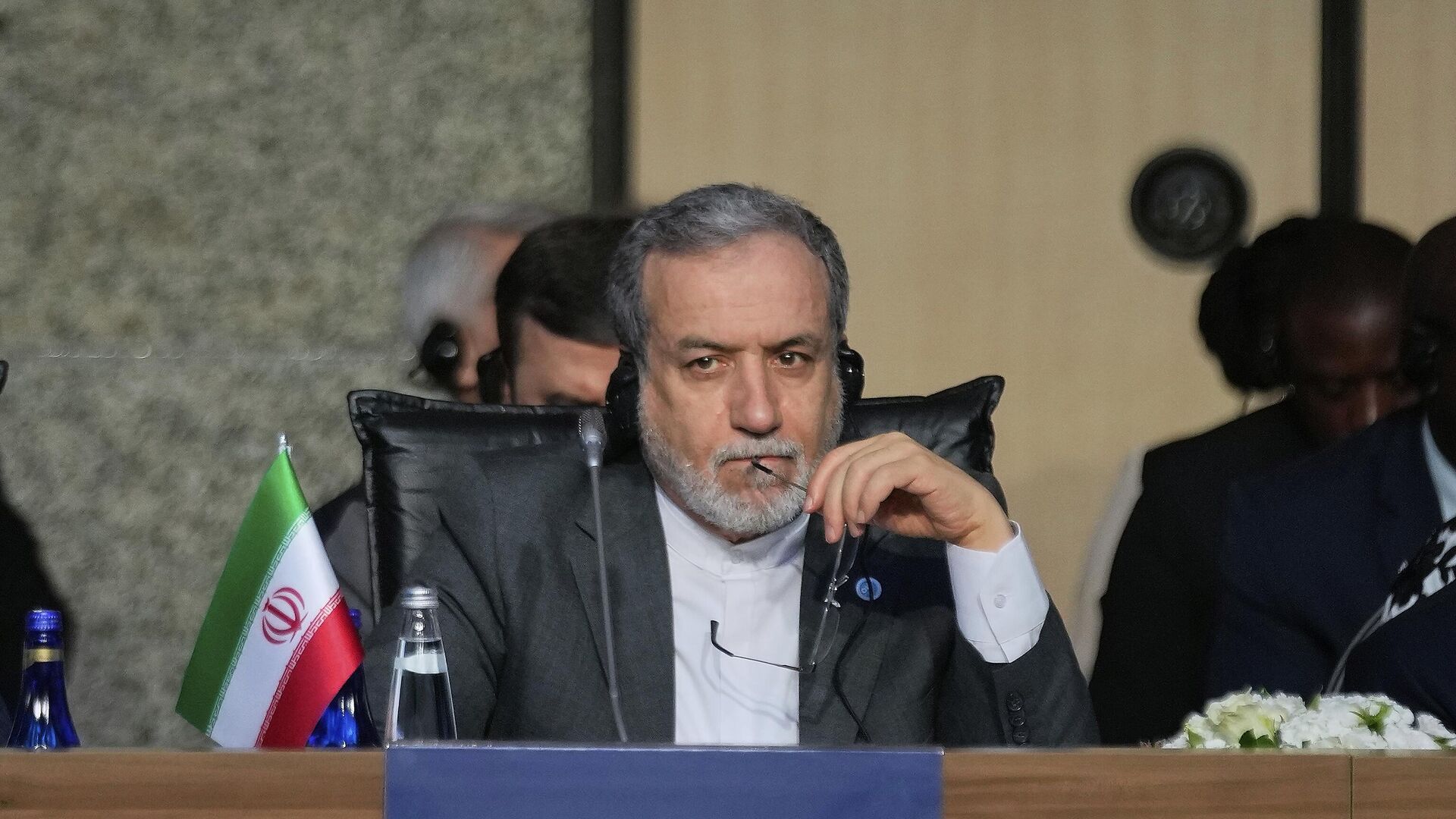https://sputniknews.in/20250701/irans-foreign-minister-says-talks-with-us-unlikely-to-resume-soon-9383149.html
Iran's Foreign Minister Says Talks With US Unlikely to Resume Soon
Iran's Foreign Minister Says Talks With US Unlikely to Resume Soon
Sputnik India
MOSCOW, July 1 (Sputnik) - Iran is not ready to quickly resume negotiations with the United States and needs assurances that it will not be subjected to... 01.07.2025, Sputnik India
2025-07-01T14:45+0530
2025-07-01T14:45+0530
2025-07-01T15:11+0530
iran
us
donald trump
israel
https://cdn1.img.sputniknews.in/img/07e9/06/16/9335124_0:0:3072:1728_1920x0_80_0_0_cbfca8fffaf7cabc9775f3990e78aedc.jpg
The US bombed Iranian nuclear facilities on June 22, at a time when Tehran was also exchanging missile strikes with Israel. On June 25, US President Donald Trump said negotiators from the US and Iran would soon convene for talks."I don't think negotiations will restart as quickly as that. In order for us to decide to reengage, we will have to first ensure that America will not revert back to targeting us in a military attack during the negotiations. And I think with all these considerations, we still need more time," Araghchi told CBS News, when asked whether talks could resume this week.The doors of diplomacy "will never slam shut," he added.Since April 12, Iran and the US have held five rounds of indirect, Oman-mediated nuclear talks. On June 14, Omani Foreign Minister Sayyid Badr Albusaidi said that the sixth round, set for June 15 in Muscat, had been canceled due to fighting between Iran and Israel.On the night of June 13, Israel launched an operation against Iran, accusing it of implementing a secret military nuclear program. Iran rejected the accusations, responding with its own attacks. The parties exchanged strikes for 12 days, which were joined by the United States, which carried out a one-time attack on Iran's nuclear facilities on the night of June 22. The following evening, Tehran launched missile strikes on the US base Al Udeid in Qatar.US President Donald Trump said late on June 23 that Israel and Iran had agreed to a ceasefire to end the "12-day war." The following day, Trump said that the ceasefire between Iran and Israel was now in effect, urging the sides not to violate it.
iran
us
israel
Sputnik India
feedback.hindi@sputniknews.com
+74956456601
MIA „Rossiya Segodnya“
2025
Sputnik India
feedback.hindi@sputniknews.com
+74956456601
MIA „Rossiya Segodnya“
News
en_IN
Sputnik India
feedback.hindi@sputniknews.com
+74956456601
MIA „Rossiya Segodnya“
Sputnik India
feedback.hindi@sputniknews.com
+74956456601
MIA „Rossiya Segodnya“
iran, us, donald trump, israel
iran, us, donald trump, israel
Iran's Foreign Minister Says Talks With US Unlikely to Resume Soon
14:45 01.07.2025 (Updated: 15:11 01.07.2025) MOSCOW, July 1 (Sputnik) - Iran is not ready to quickly resume negotiations with the United States and needs assurances that it will not be subjected to military aggression during the talks, Iranian Foreign Minister Abbas Araghchi said on Tuesday.
The US bombed Iranian nuclear facilities on June 22, at a time when Tehran was also exchanging missile strikes with Israel. On June 25, US President Donald Trump said negotiators from the US and Iran would soon convene for talks.
"I don't think negotiations will restart as quickly as that. In order for us to decide to reengage, we will have to first ensure that America will not revert back to targeting us in a military attack during the negotiations. And I think with all these considerations, we still need more time," Araghchi told CBS News, when asked whether talks could resume this week.
The doors of diplomacy "will never slam shut," he added.
Since April 12, Iran and the US have held five rounds of indirect, Oman-mediated nuclear talks. On June 14, Omani Foreign Minister Sayyid Badr Albusaidi said that the sixth round, set for June 15 in Muscat, had been canceled due to fighting between Iran and Israel.
On the night of June 13, Israel launched an operation against Iran, accusing it of implementing a secret military nuclear program. Iran rejected the accusations, responding with its own attacks. The parties exchanged strikes for 12 days, which were joined by the United States, which carried out a one-time attack on Iran's nuclear facilities on the night of June 22. The following evening, Tehran launched missile strikes on the US base Al Udeid in Qatar.
US President Donald Trump said late on June 23 that Israel and Iran had agreed to a ceasefire to end the "12-day war." The following day, Trump said that the ceasefire between Iran and Israel was now in effect, urging the sides not to violate it.

